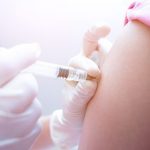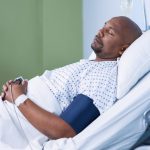
As Americans await their COVID-19 shot, a new study of a different vaccine shows the power of Facebook posts in fueling “anti-vax” resistance to immunization. The study included more than 10 years of public Facebook posts on the human papillomavirus (HPV) vaccine. It found that nearly 40% of 6,500 HPV vaccine-related posts from 2006 to 2016 amplified a perceived risk. The data suggest the posts had momentum over time. “We should not assume that only the disease is perceived as a risk, but when research supports it, that medical treatments and interventions might unfortunately also be perceived as risks,” said Monique Luisi, an assistant professor at the University of Missouri School of Journalism, in Columbia. “It’s more likely that people are going to see things on social media, particularly on Facebook, that are not only negative about the HPV vaccine, but will also suggest the HPV vaccine could be harmful. It amplifies the fear that people may have about the vaccine, and we see that posts that amplify fear are more likely to trend than those that don’t,” she said in a school news release Luisi said the findings could shed light on the COVID-19 vaccine rollout and distribution. During the rollout, people will likely see a lot of negative information and that negative information will be what trends on social media, she said. “If… read on > read on >













